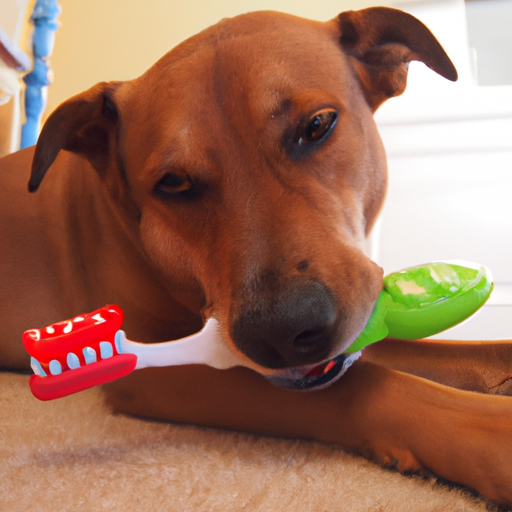As a caregiver to a canine companion, you may have found yourself asking, “why do dogs teeth?” This question might come up especially when you’re dealing with a puppy who seems to chew everything in sight, or an older dog who’s suddenly taken to gnawing on your favorite pair of shoes. Let’s delve into this fascinating topic.
Understanding the Teething Process
Teething is a natural and necessary process that all dogs go through as they transition from puppyhood to adulthood. This process is much like human babies getting their milk teeth before the permanent ones grow in.
- Birth to 3 weeks: Puppies are born without teeth.
- 3 to 6 weeks: Baby teeth begin to come in.
- 12 to 16 weeks: Baby teeth start to fall out, and adult teeth begin to grow.
- 6 months: Most dogs should have a full set of adult teeth.
The process can cause discomfort and pain, leading to increased chewing behavior.
Why Chewing is Important for Dogs
Chewing is a natural behavior that dogs engage in for a variety of reasons. It is much more than just a reaction to the discomfort of teething.
- Relief from Teething: Chewing can help alleviate the pain and discomfort associated with teething.
- Exercise and Mental Stimulation: It provides an excellent source of mental stimulation and serves as a form of exercise for the jaw muscles.
- Oral Health: Regular chewing can also contribute to oral health by helping to clean teeth and gums.
How to Manage Your Dog’s Teething and Chewing
While chewing is a normal behavior, it can become a problem if your dog starts to chew on inappropriate items. Here are some strategies you can implement:
Provide Appropriate Chew Toys: Make sure your dog has a variety of chew toys. Not only will this protect your furniture and personal items, but it will also provide relief for your teething dog.
| Type of Chew Toys | Benefits |
|---|---|
| Rubber Toys | Durable and good for vigorous chewers |
| Rope Toys | Helps clean teeth and gums |
| Edible Chews | Satisfies the urge to chew and can be a tasty treat |
Use Deterrent Sprays: These are non-toxic sprays that have a taste or scent that dogs find unappealing. Spray it on items you don’t want your dog to chew.
Training: Train your dog to understand what is acceptable to chew and what is not. Provide positive reinforcement when your dog chews on appropriate items.
Taking Care of Your Dog’s Dental Health
Beyond teething, maintaining your dog’s dental health is crucial. Dental disease can lead to serious health problems, including heart disease and kidney failure.
- Regular Brushing: Brushing your dog’s teeth regularly can prevent plaque and tartar build-up.
- Professional Cleaning: Consider having your dog’s teeth professionally cleaned by a vet.
- Dental Chews and Toys: These can help keep your dog’s teeth clean in between brushings.
Frequently Asked Questions
Why is my adult dog chewing on everything?
Although teething generally stops once a dog reaches adulthood, some dogs continue to chew because of boredom, anxiety, or lack of mental stimulation. Providing chew toys and ensuring your dog gets plenty of exercise can help curb excessive chewing.
How can I soothe my puppy’s sore gums?
Offering chew toys specifically designed for teething puppies can provide relief. Some toys can be frozen, providing a cooling effect that can soothe sore gums.
What should I do if my dog’s adult tooth hasn’t come in?
If your dog’s adult tooth hasn’t come in and the baby tooth hasn’t fallen out, it’s best to consult a vet. They may need to extract the baby tooth to allow the adult tooth to grow properly.
Remember, your role as a caregiver is crucial in managing your dog’s teething and chewing habits. Understanding the why and how of dog teething is the first step in ensuring your furry friend grows up healthy and happy.



